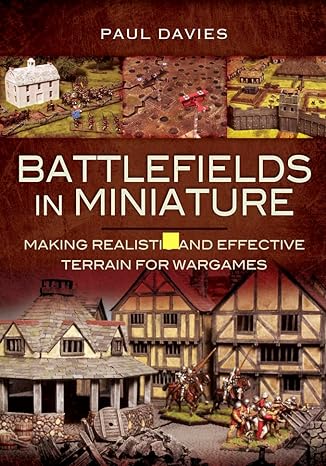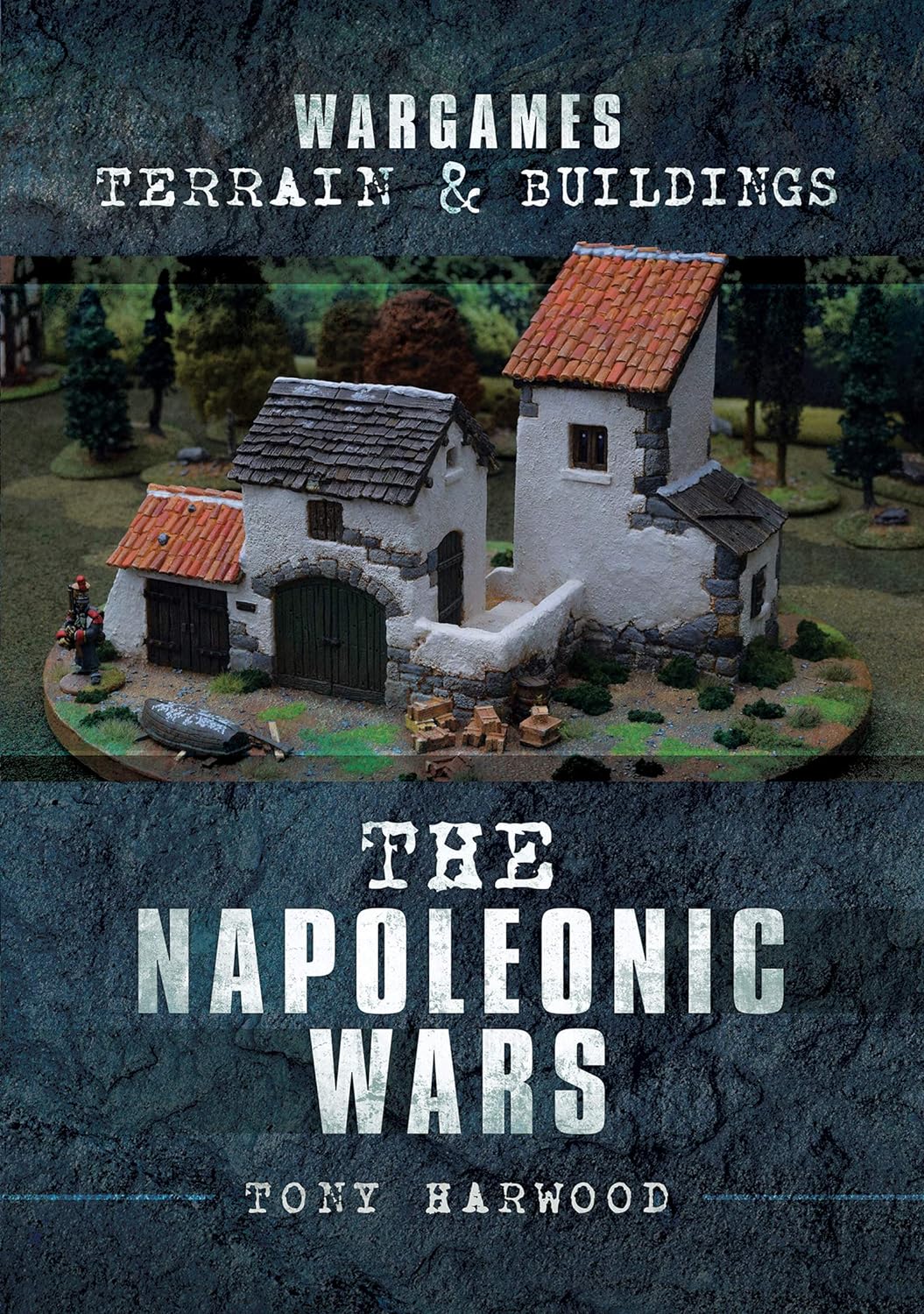The Miracle of Manchester!
Britcon game 6 saw me face the rash impetuous dashing young blade, John Sampson and his Medieval Portuguese. This was the Prince Rupert of Wargames, a raving maniac who would no doubt attack me like a madman all across the park...
Sorry, that's another John Sampson.
My mistake
So, I'd be digging dismounted knights and auxilia out of a corner then whilst wondering if the traffic from the footie would get in the way of my drive home. Great!
Never mind - Lets just hope the terrain falls kindly to make an open game of it !
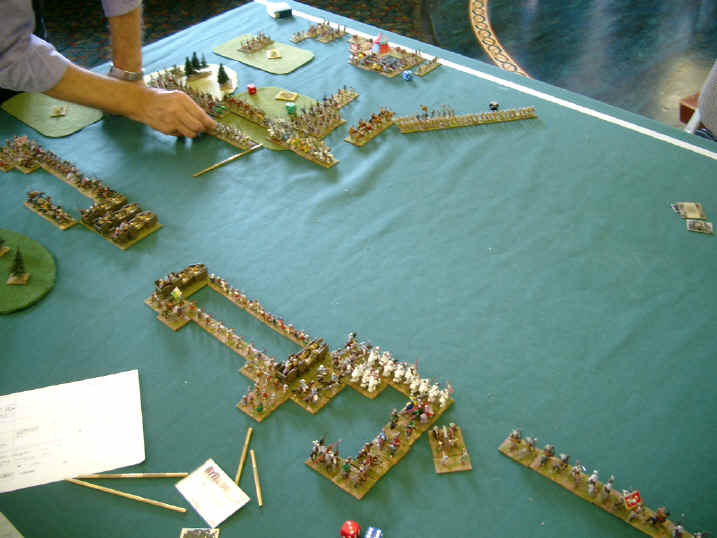
That'll be a "no" then.
However, not all is as it seems in this World of Wargaming
Often the Strangest things can happen, when you least expect them.
John Attacked... So, following The Miracle of Manchester, the Lithuanians found themselves embroiled in a desperate struggle against 8 expendable knights, even before they have time to get out of the starting blocks!
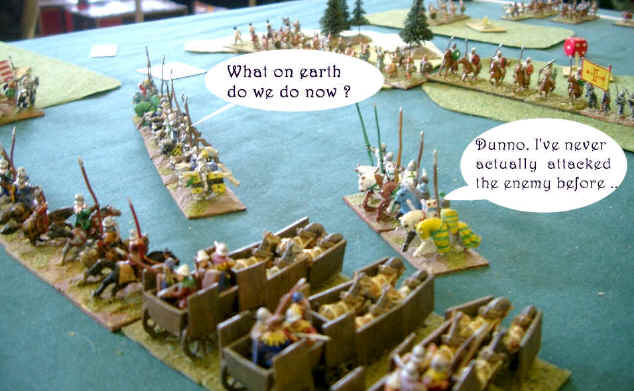
The Wagons pushed forwards on one flank, and the auxilia made a rush for the rough ground on the other, as the Lithuanian light horse and cavalry could do little save gird their loins and prepare to be hit. However the actions of the wagons were enough to attract the attention of the majority of the Portuguese knights, who started battering themselves futilely into the wooden walls as only 3 of their colleagues made it through to the light horse and cavalry, forcing the Portly Geezers to commit come light horse as well to help support the charge.
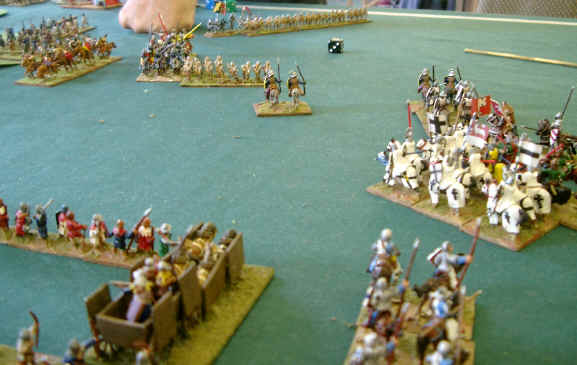
This attack had left much of the Lithuanian army in entirely the wrong place, and the Teutons in particular were desperate to see some action. They attempted to sneak across the face of my CinC's command without the English noticing, so they could get some action against the French knights (again in an expendable command) and possibly even slam into the rear of the knights and light horse attacking my left flank. The smaller command was therefore detailed to harry and harass the 10-strong English and generally prevent their coherent advance.
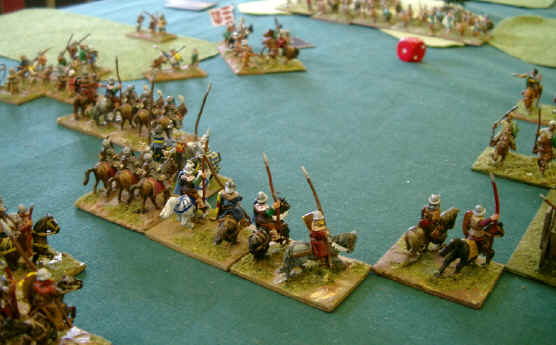
Soon the attacking force of knights was whittled away, both from exploding in the face of light horse, and by opportunistic attacks from the auxilia who sacrificed a few of their number to stage some audacious flank attacks, catching not only knights but also light horse - vital casualties to try and drag the two Portuguese commands closer to their break points
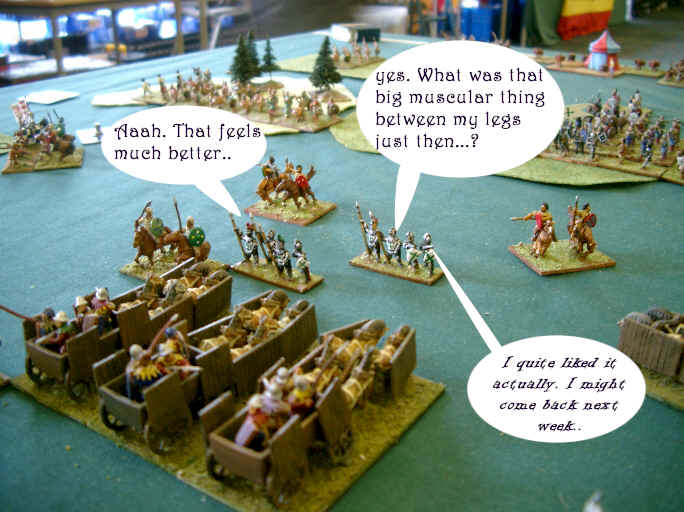
With their colleagues exploding, the knights attacking the wagons soon reverted to their more traditional fully evolved form and turned into Bd (S).
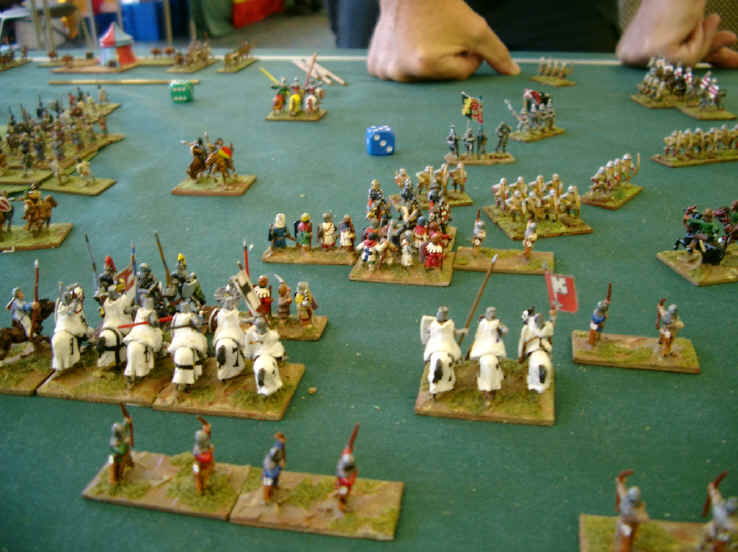
The focus of the game was now shifting to my right, as the CinC, Teutons and small LH command were all concentrated on overwhelming the English - which also involved dealing with 3 French K (S) who were by now on autopilot just causing mayhem whilst taking no pips and risking no meaningful losses for the Portlies.
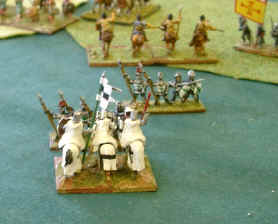
It was looking increasingly hard to kill any of the Portuguese commands - the English were really the only ones fully in play, there was no prospect of killing the CinC, as he had by now retreated and his padding may as well have been back in Portugal for all the chance I would have of getting it. The two larger commands with the expendable knights had both suffered some losses among their light horse, and so were possible targets - but the one on my far left had retreated all its stuff back into a wood, and looked very safe. It would have to be the English and the larger Portly command holding the edge of the woods and broken ground. I would need to nail the two by-now dismounted knights, and get another 2 elements as well - so a Teuton was despatched on a mission, at great pip expense to finish them off.
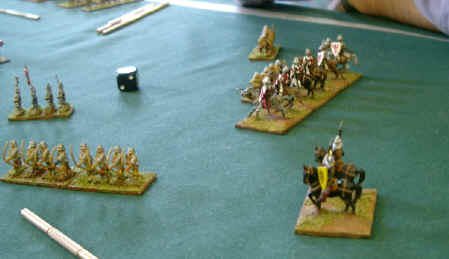
Over on the far right, the English line had become a little ragged in its attempt to protect the entire line, and opportunities were appearing for my own light horse to take on 2-2 combats to whittle them down - but the stout yeomen were proving incredibly resilient, and the Lithuanians frustration mounted as quickly as the Portuguese knights had dismounted.The clock was ticking...But by now the Lithuanian CinC was also starting to join the fray, with his host of blades and psiloi. Even the Teutons were thinking about getting into the fray, although as always the best opportunities seems to be falling to the rather flimsy Teutonic light horse and not the super-hard knights.
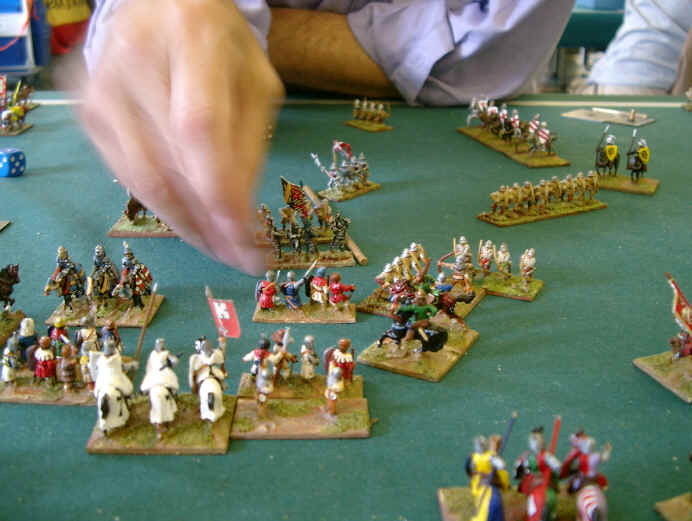
As the bounds and minutes ticked away, the Lithuanians rushed through the 12th bound just to get another pair in. Wagons pushed forwards, and everyone attacked everything they could in one last attempt to secure the 2 casualties needed (one English and one Portuguese) to claim the gettable commands. In the final bound, the Lithuanians chances looked slim. The obvious combats failed to succeed, and the last two to roll were both where I needed to roll up at least 2 - The first one worked, and a Portuguese command exploded!Now it was down to the steel of the English General against the ebgineering excellence of the Hussite flailmen. 5-4 up and Superior...
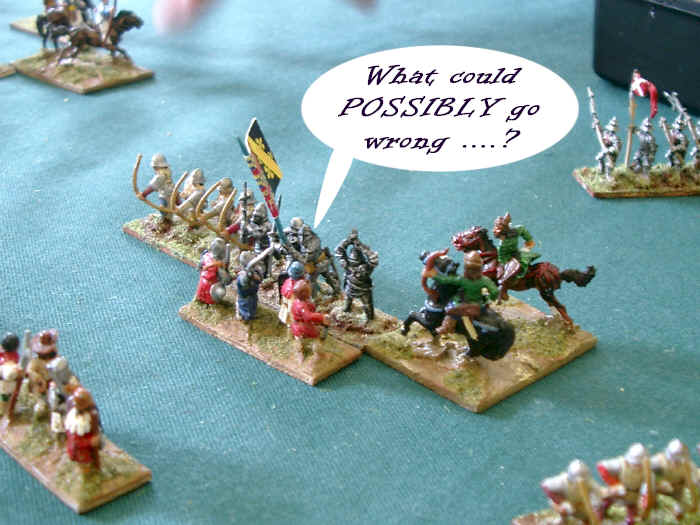
He Died! And with him, the English turned and fled the field in disarray, pushing the entire Anglo-Portuguese alliance over the edge and into total 10-0 defeat! A last minute victory for the Liths, to sneak into 2nd place overall on 47/60 old-money points !
Post Match AnalysisThe Portuguese went for a classic "strike troops out front, and filler safe at the back" approach, but unlike the first game the filler was just close enough to be nibbled away by the advancing Lithuanians, and the strike troops failed to last anywhere near as long as those damned blade (F) !! The other factor was that the English were given an almost impossible task in defending an entire flank against close on 3 Lithuanian commands. Bw (S) are very tough to break down one-on-one with a force of only LH and Kn, but given virtually the entire 13 bounds to do so, and with the arrival of the Lithuanian CinC as well the odds swing back against the plucky Brits, as gaps will inevitably appear and there is a limit to the number of 2-2 combats even S troops can survive.These two Hammytastic charts shows this quite clearly.
Throughout the game, pip fortunes fluctuated, probably slightly favoring the Lithuanians.
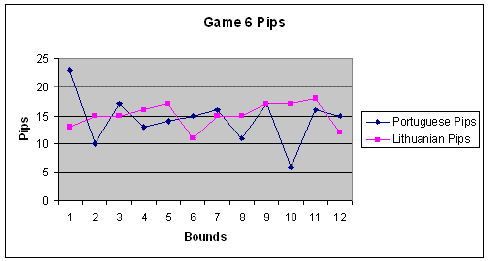 But
from bound 5 or 6 it was virtually 3 commands against the English, with the
Portuguese CinC leaving his 3 committed French knights largely to their own
devices. Take the "hiding" Portuguese commands and the Lithuanian
command facing them off out of the equation and the pip distribution looks
like this:
But
from bound 5 or 6 it was virtually 3 commands against the English, with the
Portuguese CinC leaving his 3 committed French knights largely to their own
devices. Take the "hiding" Portuguese commands and the Lithuanian
command facing them off out of the equation and the pip distribution looks
like this: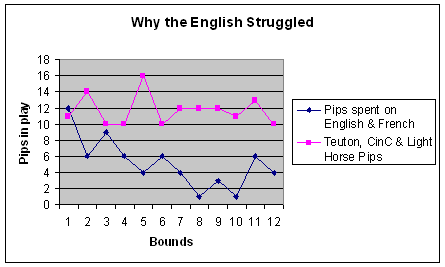
With this sort of advantage in pips, the Brits became picked apart and overrun.
Back to match indexback to Index


